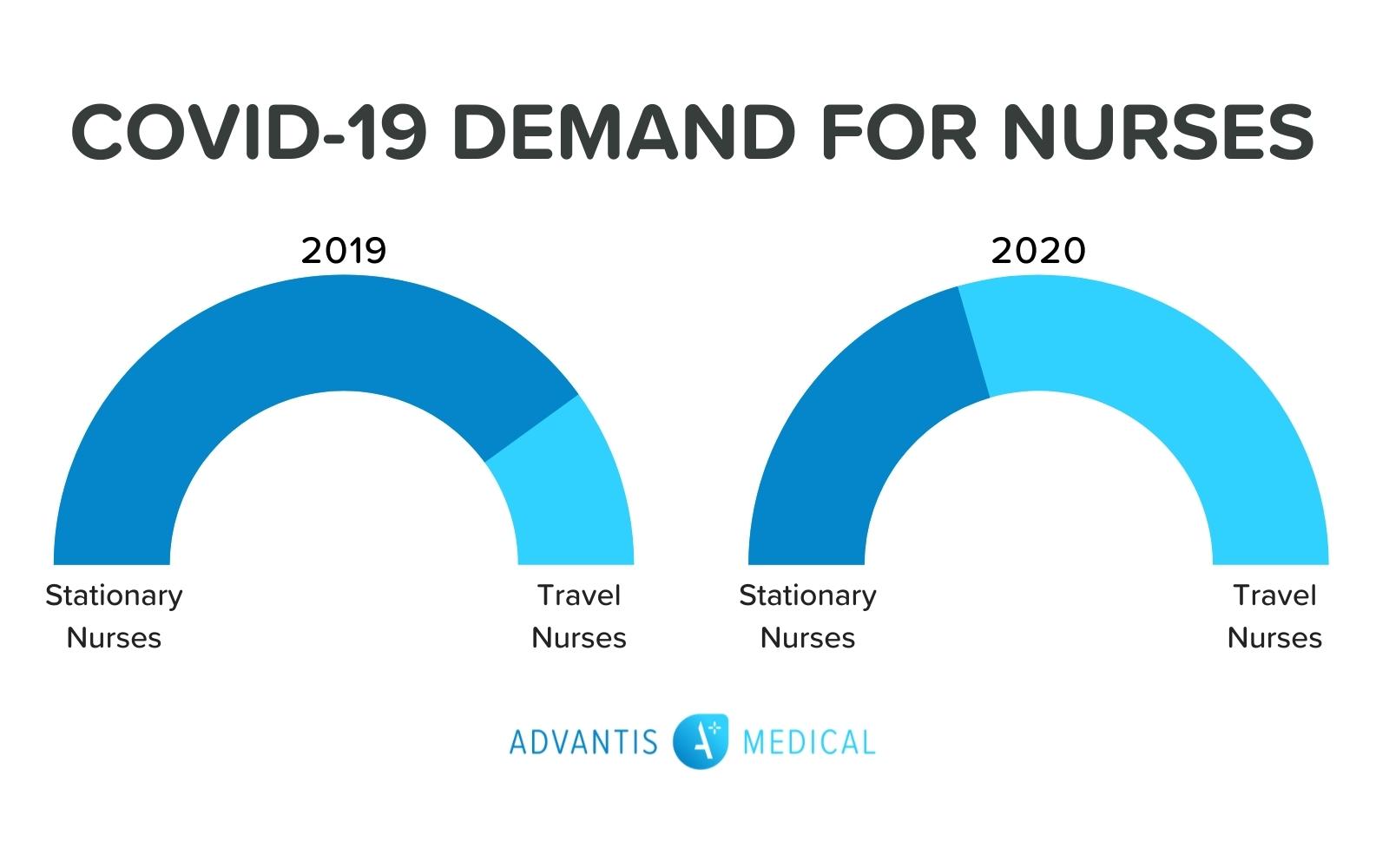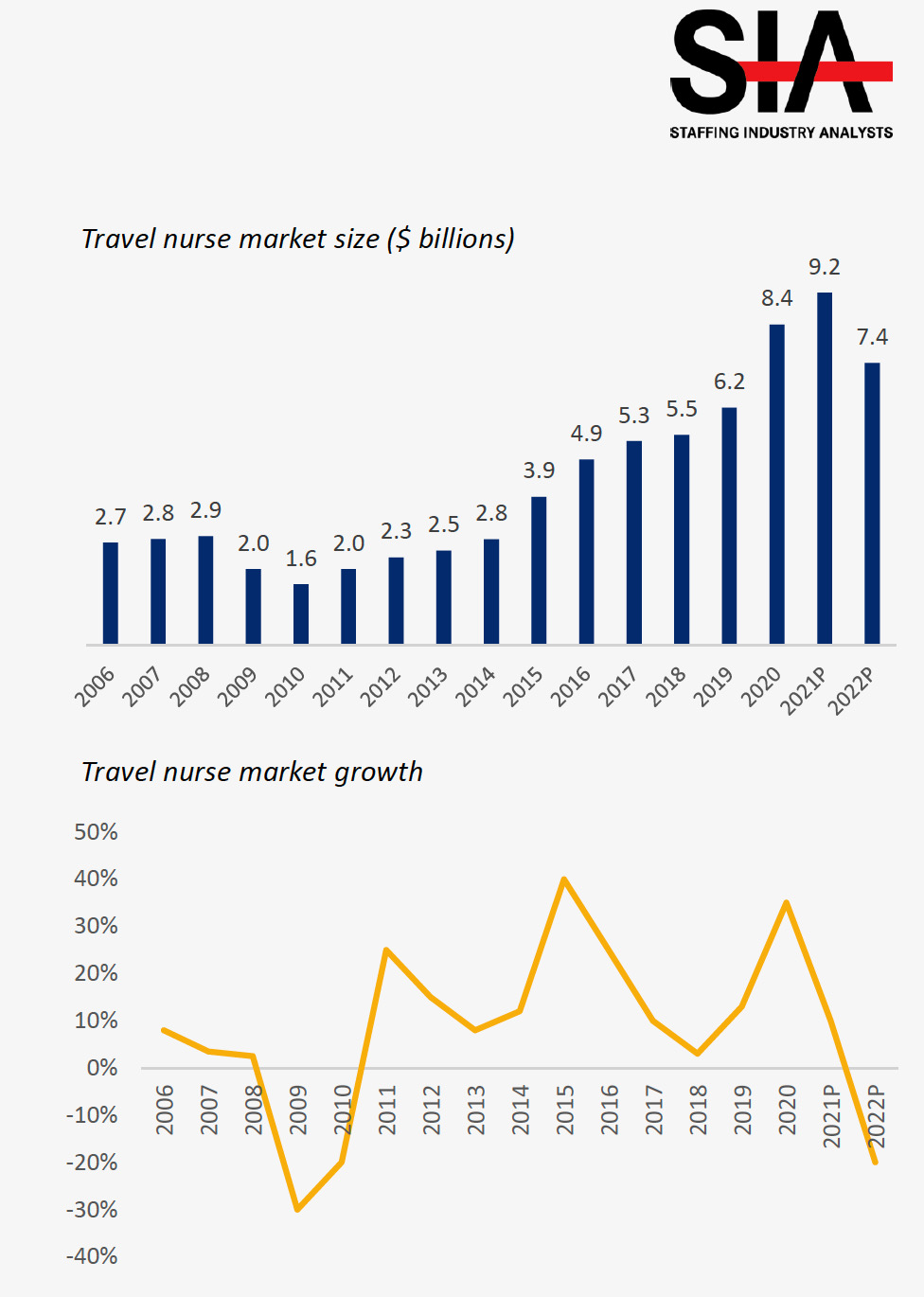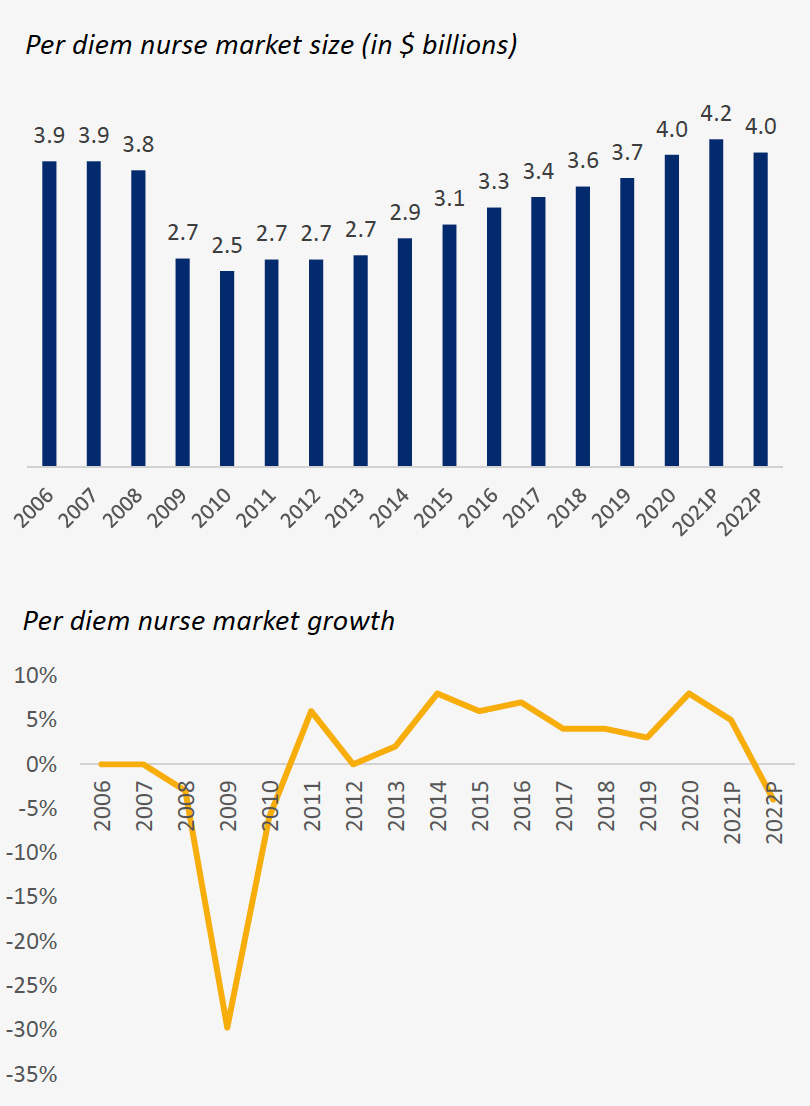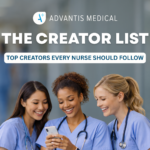Nurses were given a newfound appreciation and respect with the arrival of the COVID-19 pandemic. The year 2020 was designated as the ‘Year of the Nurse’ by the World Health Organization, honoring the 200th anniversary of Florence Nightingale’s birth.
The pandemic changed the way hospitals responded to crises as they handled the virus in their intensive care units, medical surgical floors, emergency rooms, and even specially designated COVID floors. Over the past year, nursing has proven to be a vital career in all aspects. Upcoming trends in nursing will continue to show the importance of nurses and nursing careers, such as education and travel nurses.
According to Staffing Industry Analysts recent US Healthcare Staffing Assessment, “The US Bureau of Labor Statistics (BLS) projects overall employment (not specific to healthcare) to grow 4% from 2019 to 2029, an annual growth rate of only 0.4%. The good news for healthcare staffing firms is that healthcare occupations are generally expected to outperform substantially. The two major categories for healthcare occupations, healthcare practitioners and healthcare support, are projected to grow 9% and 23%, respectively, over that time.
To find 2022 healthcare trend forecasts, please see our newest blog post.
The Trends in Nursing Changes COVID-19 Brought
The arrival of the coronavirus brought unprecedented stress to our healthcare system. The influx of patients and the danger of the virus also brought many changes in the patient and visitor procedures. The healthcare industry found a huge nurse shortage as some nurses were quarantined, and others elected to stay home due to high-risk household members, leading to higher provider-to-patient ratios and risk of provider burnout. Many facilities were not adequately staffed to keep up with the number of patients being admitted and hospital beds quickly filled with sick patients. Travel nurses were essential in filling vacancies in hospitals and outpatient centers and saw a significant bill rate increase due to the increase in risk and shift in supply and demand.
With the increase in travel nurse bill rates, travel nursing agencies received an influx of new applicants who had no prior travel experience. Nurses and Respiratory Therapists soon realized they could be compensated significantly more for travel assignments than by staying in their permanent positions. This resulted in an extremely competitive market where facilities had to adjust to retain their clinicians or seek out temporary support to replace providers who left.

Other changes were temporary, but still affected the nursing profession as shifts were made. Elective surgeries were postponed, sometimes for a few months or longer, to avoid the risk of staff members and providers encountering the virus. Some of these nurses in surgical settings pursued travel nursing jobs in other specialties to continue to work throughout the pandemic. They began filling the gaps in the areas hit hardest by COVID-19.
When the COVID-19 vaccine was more widely available, many nurses left their intensive inpatient positions to take on temporary vaccine administration/observation assignments.
Travel nursing proved to be a lucrative career choice with plenty of opportunities and job security like never seen before. The current trends in nursing are similar to the housing market, the pandemic created a “seller’s market and buyers/facilities had to move quickly to secure top talent.
Where Nursing is Headed
While travel nurses were crucial to keeping intensive care units, medical surgical units, and emergency rooms operating during the height of the pandemic, they may be sensing a change in their pay and job opportunities over the course of the next year. Hospital and medical facilities have seemingly adapted to the pandemic and made medical staffing changes necessary to react to the crisis. However, even with the adaptations, COVID-19 cases are still prevalent, and cases today remain above levels seen in September 2020.

According to SIA’s travel nurse market size and growth projections, “…due to the surge in volume growth and crisis bill rate premiums brought by COVID cases, especially amid last winter’s second wave, we estimate travel nurse revenue surged 35% in 2020. Though COVID cases peaked last January, they remain above levels from September of last year (at the time of this writing), and burnout continues to be a factor. Thus, we project travel nurse market revenue to grow 10% this year, albeit with sequential declines throughout the year following an exceptionally strong Q1. As we expect volume and bill rates to return to normal before 2022, a 20% decline is projected for next year, primarily because Q1 2021 will be a very difficult prior year comparison.
While some specialties will experience a decrease in travel opportunity over the course of the next year, others such as surgical, oncology, cardiology, and behavioral health may peak post-COVID. With Elective surgeries being halted for so long, many patients will be looking to reschedule surgeries they had anticipated undergoing the previous year. Many Patients also chose to forgo routine, preventative care screenings during the pandemic for fear of contracting the virus in medical settings. This may lead to an increase in diagnoses such as cancer, heart disease, and diabetes patients become more comfortable after receiving the vaccine to return for their annual visits. The pandemic also created many new emotions for patients, such as fear, anxiety, stress, anger, sadness, and regret. Behavioral health nurses will be integral in helping patients recover from the aftermath of COVID-19.
Let’s not forget per diem nurses as well. According to SIA, “The per diem nurse market has grown due to the demand for nurses in the pandemic. We project Technological advancements are making per diem nurse staffing easier for clients and candidates. (For example, once a nurse has already been credentialed to work at a facility, selecting assignments can often easily be done via mobile app) … The per diem nurse market has grown due to the demand for nurses in the pandemic. We project that demand to continue to drive growth this year, with the market retracting next year.

The current trends in nursing has increased the number of people becoming nurses. Nurses are regarded as heroes due to their responsibility throughout the pandemic, and pay has increased to show appreciation for their hard work. The recognition from this past year may generate higher interest in the nursing profession.
Introduction of Online Services and Technologies
Adjusting to the COVID-19 pandemic was no easy feat. Many clinics and healthcare facilities have introduced opportunities for virtual assessments and appointments with healthcare professionals. The public is now able to virtually see a doctor or nurse and get access to information without visiting a medical building. Healthcare has never been more convenient.
Additionally, Advantis Medical Staffing has quickly adjusted to the pandemic by introducing AdvantisConnect. With the increasing demands for nurses and permanent staff nurses leaving their positions to travel nurse, AdvantisConnect has made it easy to help staff facilities. The job portal easily connects qualified travel nurses to crises job assignments across the United States.
The Future of Nursing is Bright
Nurses have been fighting on the frontlines against the coronavirus, taking on various roles in the battle. Nurses have been the empathetic caretaker, the shoulder to cry on, the hand to hold as family members and friends were not able to do so with the visitation restrictions. There will always be a need for caring nurses; those who are willing to take on the unknown and put their patients first.
Advantis Medical has adapted with the pandemic and trends in nursing, and will continue to do so as we all adjust to our new normal. Many of our travelers have expressed a desire to return to permanent positions after exhausting travel assignments. We have created a permanent staffing division to provide a wider array of service offerings to our clinicians and clients.
While the role of some travel nurses may be less urgent when COVID-19 cases subside, these clinicians will still be necessary for vacancies to account for retirements, maternity/paternity leaves, medical leaves, and for interim coverage while permanent recruiting. The pandemic is not over, and the future strains of the virus are not guaranteed to go quietly into the night. Hospitals and procedures will continue to change to improve their capabilities and Advantis Medical will continue to support our clinicians and clients in the ever-changing healthcare environment.









